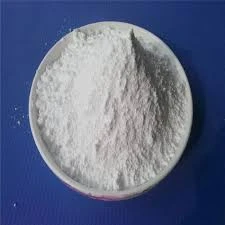Boiler Feed Water Chemical Treatment
Boiler feed water chemical treatment is a critical process in the operation and maintenance of steam boilers. The quality of the water used in boilers significantly impacts the efficiency, longevity, and safety of the boiler system. Proper chemical treatment of boiler feed water is essential to prevent a range of problems, including corrosion, scaling, and foaming.
Importance of Water Quality
Steam boilers require high-quality feed water to produce steam effectively. If the water contains impurities such as dissolved solids, oxygen, and carbon dioxide, it can lead to various issues. Corrosion is one of the most common problems, where the metal surfaces within the boiler are damaged by chemical reactions. This not only shortens the lifespan of boiler components but can also result in leaks and failures, leading to costly repairs and downtime.
Scaling is another significant concern. Hard water, which contains high levels of calcium and magnesium, can form deposits on the heat transfer surfaces inside the boiler. This scaling act as an insulator, reducing the efficiency of heat transfer and increasing fuel consumption. In severe cases, it can lead to overheating and catastrophic failure of the boiler.
Chemical Treatment Methods
To mitigate these problems, various chemical treatment methods are employed. The primary goal is to modify the properties of the feed water to make it suitable for steam generation. The following are common chemical treatments used in boiler feed water treatment
1. Oxygen Scavengers Oxygen is a major contributor to corrosion. Oxygen scavengers, such as sodium sulfite or hydrazine, are added to the feed water to remove dissolved oxygen. This chemical reaction forms benign byproducts, preventing oxidative corrosion of the metal surfaces.
2. Scale Inhibitors To combat scaling, scale inhibitors like phosphates, polyacrylic acids, and chelants are introduced into the water. These compounds help to keep the hardness minerals in solution, preventing them from precipitating and forming scale deposits on boiler surfaces.
boiler feed water chemical treatment

3. pH Control Agents Maintaining the appropriate pH level in the boiler water is crucial for minimizing corrosion risks and enhancing the effectiveness of scaling control agents. Chemicals such as sodium hydroxide or sodium bicarbonate are used to adjust the pH, typically targeted between 10.5 and 11.5 for normal boiler operations.
4. Condensate Treatment In systems where steam is condensed and returned to the boiler, it is essential to treat the condensate to remove any contaminants before it re-enters the system. This process may involve additional chemical treatments to neutralize any acidic components that could corrode the boiler.
5. Filtration Apart from chemical treatment, filtration processes are employed to remove suspended solids and impurities from the feed water. This can involve the use of mechanical filters, cartridge filters, or advanced filtration technologies like reverse osmosis.
Monitoring and Maintenance
Regular monitoring and analysis of the boiler feed water quality are crucial for the effectiveness of chemical treatment programs. Automated systems can continuously monitor parameters such as pH, conductivity, and dissolved oxygen levels, providing real-time data that allows operators to adjust chemical dosages as needed.
Moreover, routine maintenance of the boiler system, including periodic cleaning and inspection, helps maintain optimal performance and longevity. Failure to monitor and maintain the chemical treatment protocols can lead to significant operational issues, safety hazards, and increased costs.
Conclusion
In conclusion, boiler feed water chemical treatment is an essential aspect of steam boiler operations. By effectively managing the water quality through chemical treatments, operators can significantly reduce the risks of corrosion, scaling, and other related issues. As steam boilers remain fundamental to numerous industries, investing in proper feeding water treatment and monitoring practices pays off in enhanced efficiency, safety, and reduced operational costs. With advancements in technology and chemical formulations, the future of boiler feed water treatment looks promising, paving the way for more sustainable and efficient steam generation processes.

